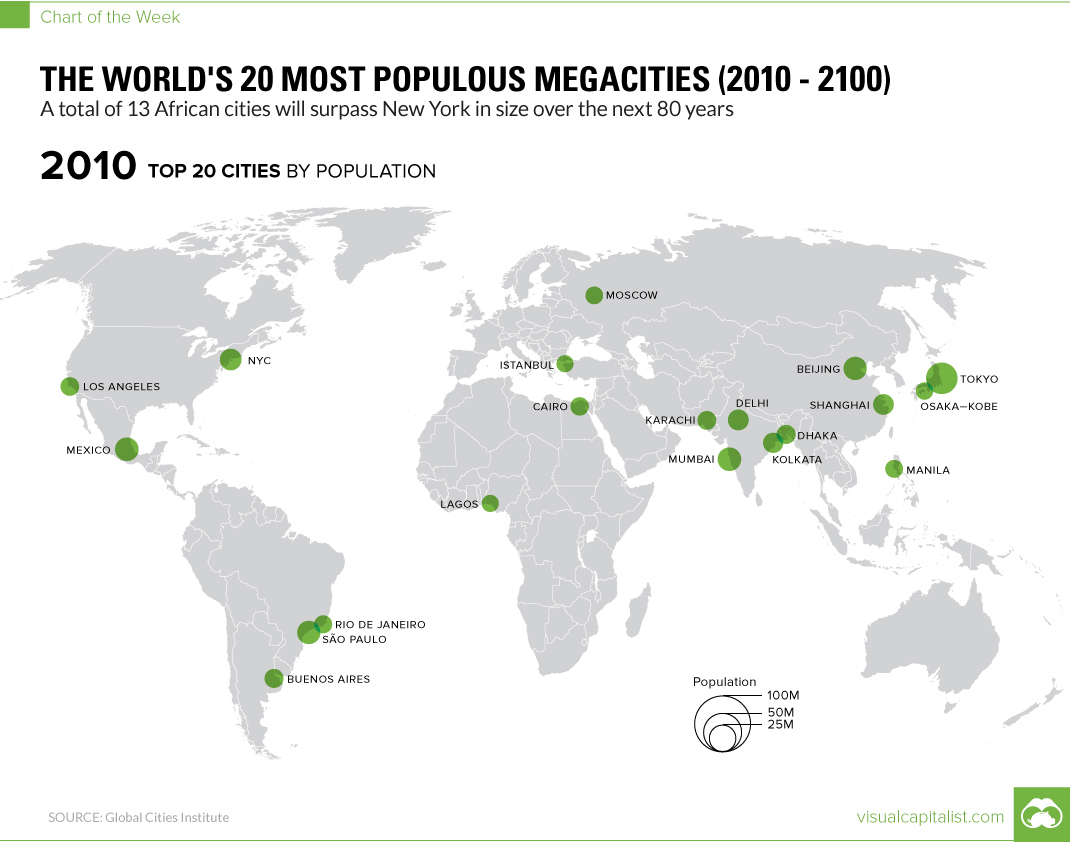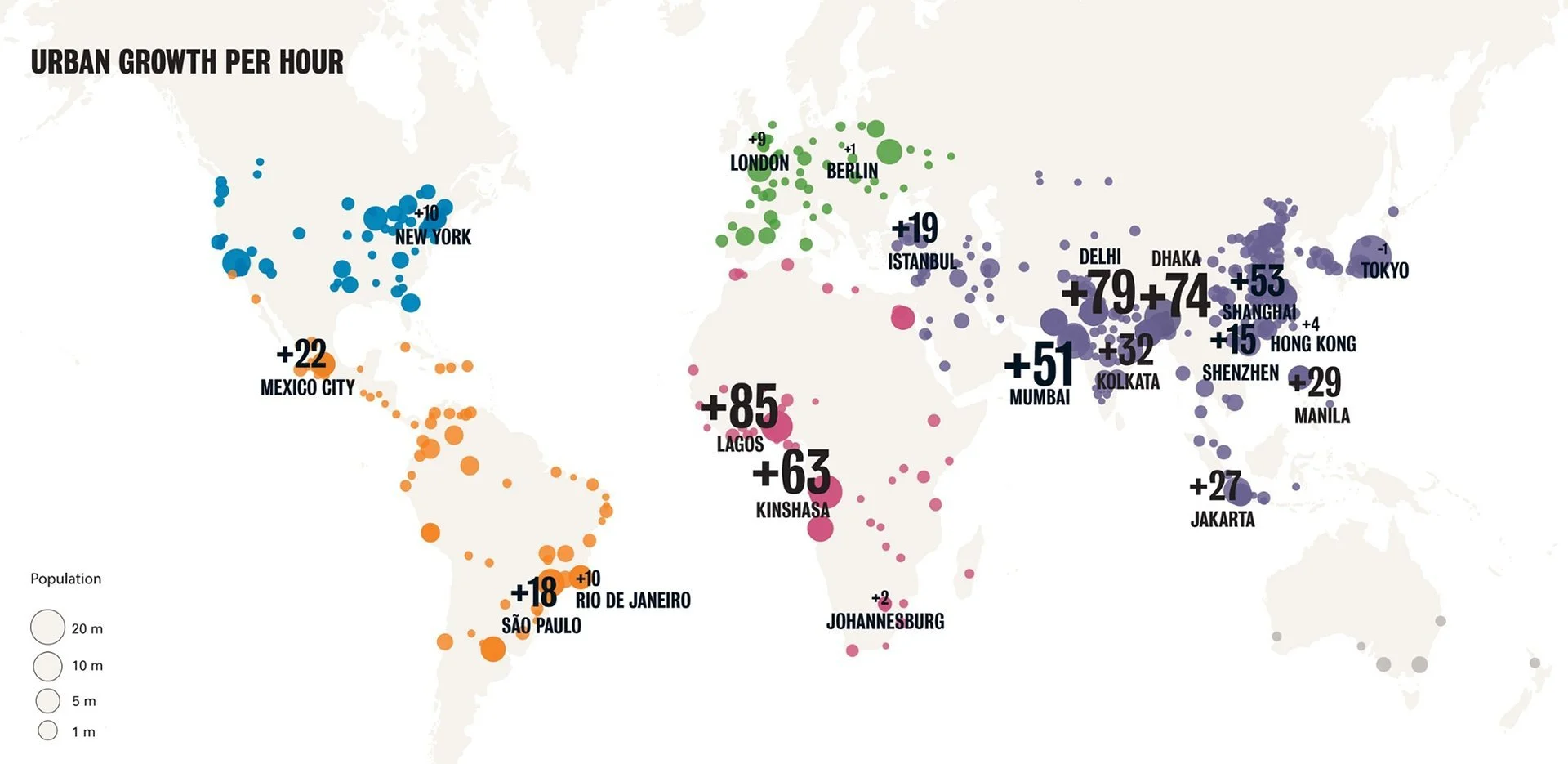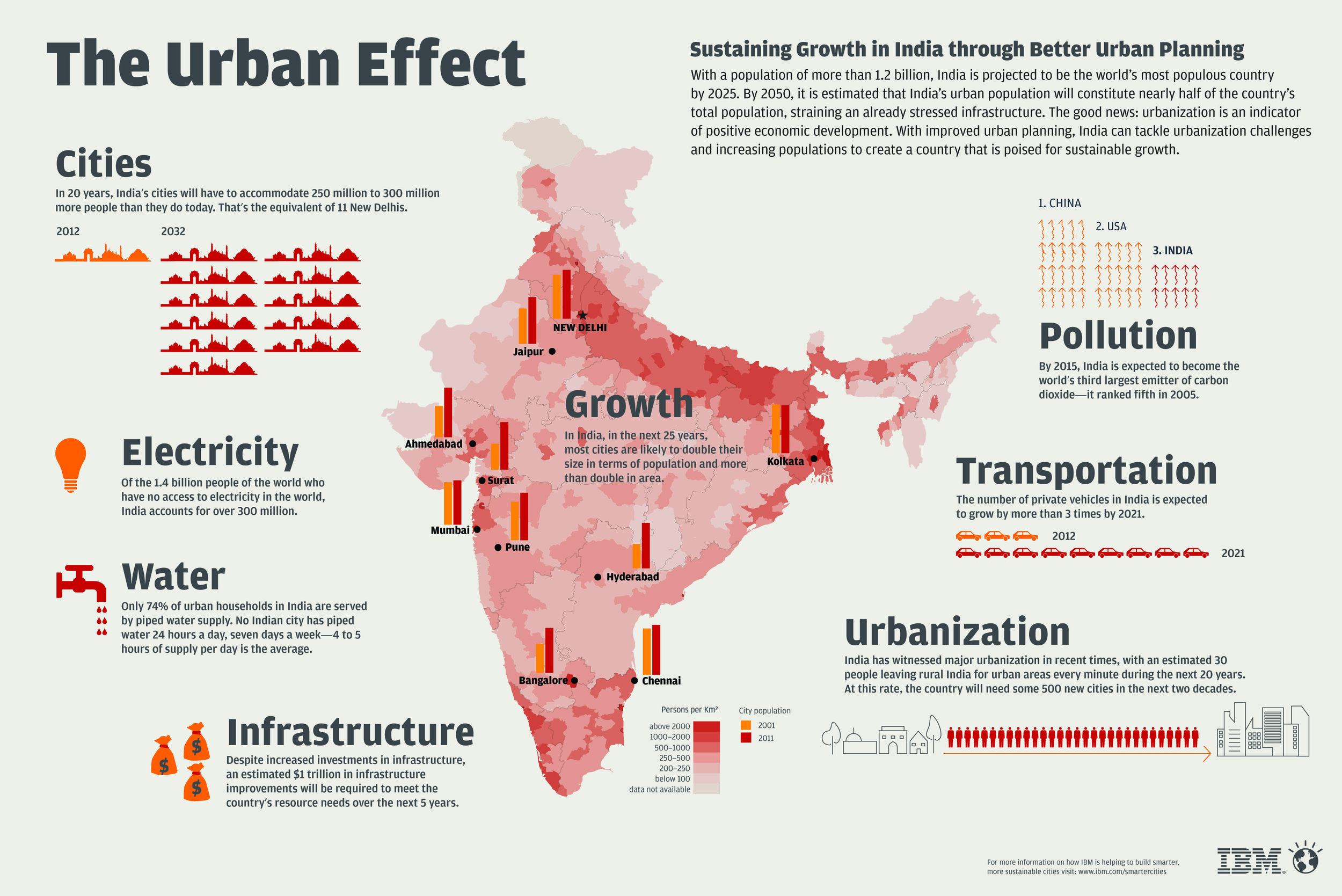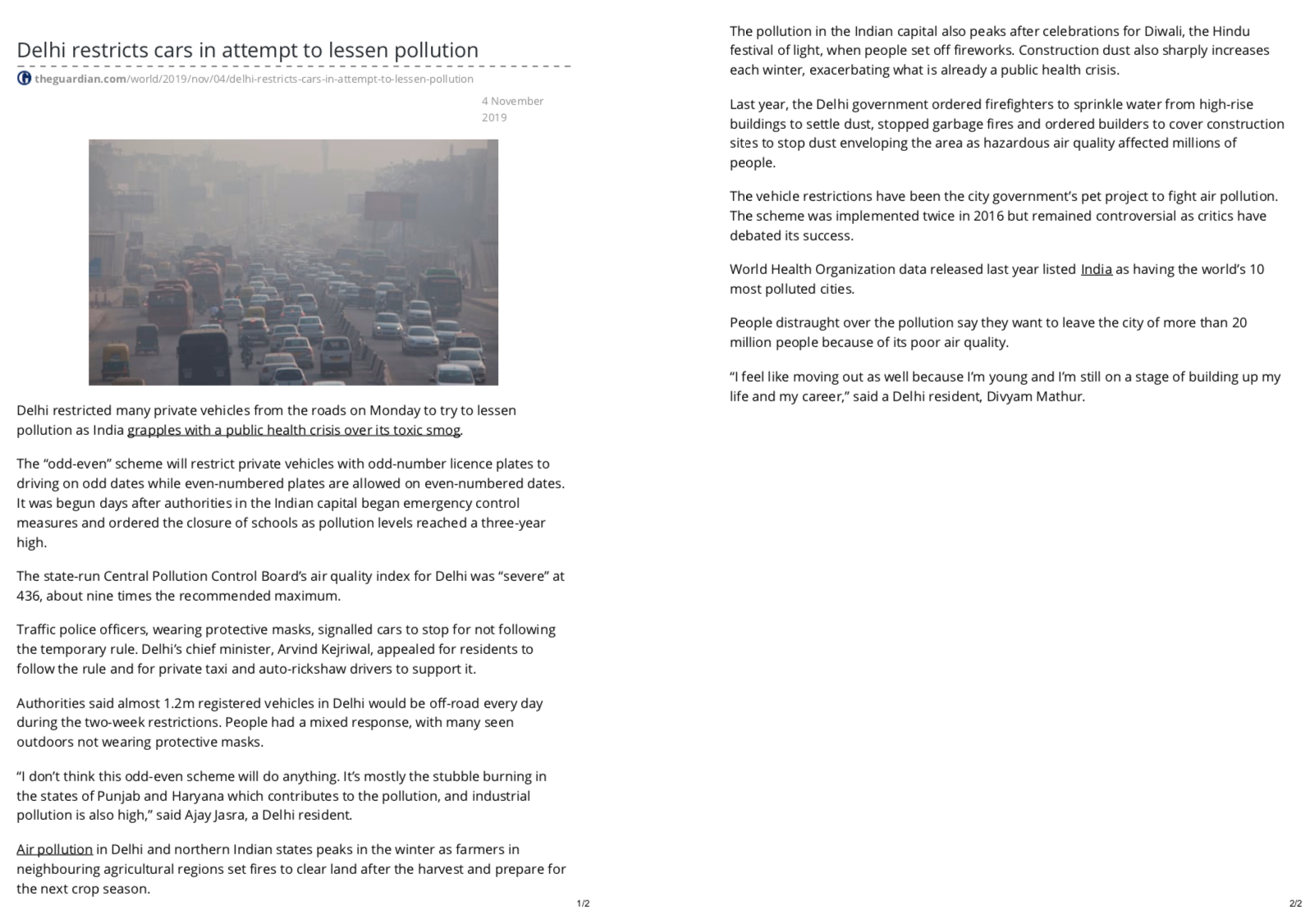



Megacities
Examine the consequences of megacity growth for individuals and societies
Megacities
Examine the consequences of megacity growth for individuals and societies
2007 was the first year in human history when more than 50% of the world's population lived in urban areas. Urbanisation is happening at a faster rate than at any time in human history.
Asia accounts for over half of today's megacities. By 2030 nearly 9% of the world's population will live in 41 megacities, with India and China having 7 megacities each.
It is predicted that Africa will have some of the highest rates of urbanisation in the future. While European and North American megacities show limited growth, megacities in developing economies continue to grow rapidly.
Megacity population (2016)
CONSEQUENCES OF MEGACITY GROWTH
SOCIAL
Poor quality housing
Wealth gap
Poverty
Crime and public safety
ECONOMIC
Unemployment
Underemployment
Economic development
Rising costs of living
ENVIRONMENTAL
Air pollution
General pollution
Water pollution
INFRASTRUCTURE
Transport provision
Congestion
Water supply
Electricity
POSSIBILITIES FOR THE FUTURE OF MEGACITIES
LAGOS, NIGERIA: MEGACITY CASE STUDY
Africa's population is expected to double by 2050, reaching 2.5 billion people.
2 thirds of Africa's population is under 25
Lagos is Africa's fastest growing city and potentially the fastest growing city in the world
21 million population (est. 2017) set to double by 2050
RESOURCES
TASK
You represent a marketing and investment firm in Lagos. Create a presentation encouraging large transnational companies (TNCs) to invest in Lagos. While you should highlight the specific issues that Lagos faces, the main focus should be on the positive changes that occurring.
Introduce Lagos as a site for potential investment. Include images, a map and data.
Outline the main issues Lagos is facing, including reference to specific named places.
Describe the many positive examples of change occurring in Lagos

Urbanisation
Describe the impact on the environment resulting from urbanisation and possible solutions to reduce this impact.
Urbanisation
Describe the impact on the environment resulting from urbanisation and possible solutions to reduce this impact.
“Urbanisation is the increasing proportion of people living in urban areas, resulting in the growth of cities.”
CASE STUDY: URBANISATION IN DHAKA, BANGLADESH
Describe the environmental problems associated with urbanisation in Dhaka, Bangladesh.
CASE STUDY: URBANISATION IN INDIA
SOLUTIONS FOR URBANISATION PROBLEMS
AIR POLLUTION
Why is air pollution in Delhi worse in winter?
In what ways is the government in Delhi responding to these problems?
EXAM PRACTICE
Complete the two statements below, that describe the situation about urbanisation rate
and urban growth in the countries of the North and the countries of the South.
In the countries of the North, the urbanisation rate is ........................ and urban growth is
.........……………….
In the countries of the South, urbanisation rate is ........................ and urban growth is ……………………….

Squatter Settlements
Describe the effects of urbanisation on the people and natural environment, including the characteristics of squatter settlements
Squatter Settlements
Describe the effects of urbanisation on the people and natural environment, including the characteristics of squatter settlements
Brainstorm the social, economic, environmental benefits and problems of informal settlements.
Aerial view of Dharavi, a slum in Mumbai, India.
WHERE ARE THE WORLD’S SLUMS?
What are the 5 characteristics of slums? Where are they often located and why?
PERCENTAGE OF URBAN POPULATION LIVING IN SLUMS
PROBLEMS OF SLUMS
Create a mind map of slum problems using the link.
CASE STUDY: DHARAVI, MUMBAI









